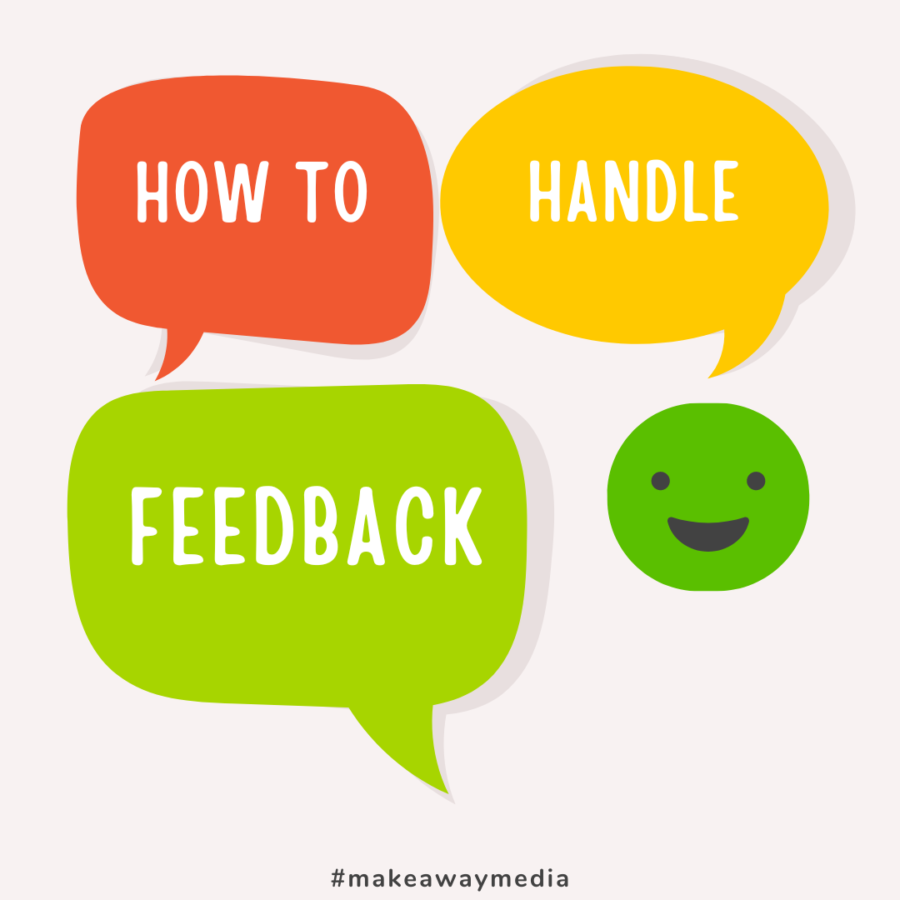One of the hardest things about making a dream come to fruition is hearing feedback when it isn’t glowing. Sometimes feedback is constructive in nature (and that is a good thing). Other times, it is downright cruel. Do you know how to handle feedback objectively so it doesn’t discourage you from pursuing your dreams? If not, these tips are valuable insights you won’t want to miss.

How to Handle Negative Feedback
If we receive feedback we don’t like, the first thing we need to do is take a look at the motivation behind the feedback. Is this feedback meant to help you improve? Or is it laced with cruelty and disrespect? If the feedback feels like a personal attack, it probably isn’t worth your mental space or energy.
Even if the negative feedback doesn’t offer anything you can use for your personal and professional development, you don’t need to react defensively. Instead, take a step back and think about the person giving the feedback.
As I mention in my upcoming book How to Dream, often negative feedback is more of a reflection of the person giving the feedback than it is of you and your dream.

Many times, people give critical feedback because they gave up on their own dreams. Your goals remind them of their own feelings and disappointments.
Other times, the person providing negative feedback may genuinely have good intentions. They might think they they are protecting your well-being or keeping you from making a mistake by giving specific examples of how things might not work out.
Regardless of how noble the intention may be, if the feedback isn’t anything you can use to keep moving forward, it is best to just ignore the criticism. Stay calm and respond to the negative feedback respectfully by thanking them for their advice and then moving the conversation in a different direction.
After that, you move on toward your dreams with the confidence. Stay focused on your own personal growth and remember that their story isn’t your story. Soon, you’ll prove them wrong by continuing to take steps forward and making progress toward your goals.
How to Handle Constructive Criticism
The other type of feedback we often get is constructive criticism. Although this kind of feedback can be helpful, it is still sometimes hard to hear.
Any time you are receiving feedback, you want to think about it as objectively as you can. Listen attentively and ask questions to help you better understand their perspective. Then, express gratitude for the person giving you feedback and their willingness to provide insights into your dreams, performance, or goals.
After the conversation, take notes on your thoughts and feelings.
Questions to ask yourself when receiving feedback:
- Is the person offering feedback in good faith? Do they have my best interests in mind?
- Is this person an expert in this field? Do I value their advice?
- Did they provide any positive feedback? What was that feedback?
- Did they offer any negative feedback? How did that make me feel?
- How can I approach this criticism with a growth mindset?
- Does any of this feedback make me think differently about my dream or how to achieve it?
- Can I use any of this feedback for my personal or professional growth?
Then, make a plan to do something with the feedback. Knowing how to handle negative feedback, or constructive criticism, in the moment is one thing. Responding to feedback with action is what really helps you grow.
Why We Need Feedback for Continuous Improvement
Sometimes a dream means so much to us that it feels like our baby. We have nurtured the idea and cared for it over weeks, months, or even years. We say we want feedback, but we really only want positive feedback and praise. Any negative feedback feels like a personal attack. Yet, if we aren’t willing to approach feedback with a growth mindset, then we aren’t really wanting to grow.
Criticism doesn’t have to be an attack. It can be a part of your process, a valuable tool to help you keep moving forward.
I’ve never met anyone who was able to accomplish a dream alone. We need feedback from others to help us make progress. So the next time someone gives you feedback that makes you want to give up, remember that it is part of the process. Listen to the feedback. Take any pieces you can learn from and use it for growth and fuel. It’s not a barrier. It’s a building block.
If you are struggling to stay motivated toward your dreams, my upcoming book How to Dream is for you. This inspiring and practical book is fill of:
- Practical strategies to overcome self-doubt in a world filled with rampant negativity

- Powerful affirmations to fuel your success
- Actionable steps to put your dreams in motion
- Techniques to help you develop a growth mindset and become unstoppable
If you’d like a sneak peek of the book, and to be the first to know when it comes out, just add your email to the box below.
Don’t let another day pass without pursuing your true potential. It’s time to make your dreams a reality—starting now!


